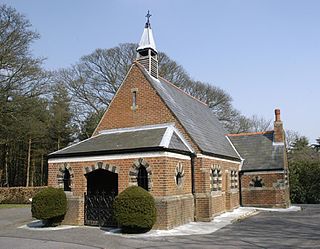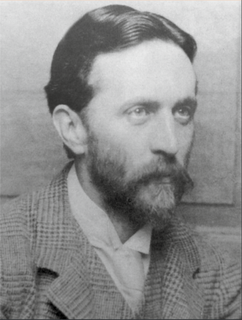
Major John Strange Spencer-Churchill, known as Jack Churchill, was the younger son of Lord Randolph Churchill and his wife Jennie, and the brother of former Prime Minister of the United Kingdom Sir Winston Churchill.
Kleinwort Benson was a leading investment bank that offered a wide range of financial services from offices throughout the United Kingdom and Channel Islands. Two families, the Kleinworts and the Bensons, founded two different merchant banks in London. They merged in 1961 to create Kleinwort Benson Lonsdale, later Kleinwort Benson. Following its acquisition by Société Générale in June 2016, it was merged with SG Hambros, already a subsidiary of Société Générale, to form Kleinwort Hambros in November 2016.
Colonel Noel Andrew Cotton Croft, was a member of the Special Operations Executive in World War II, with operations in Norway and Corsica, as well as military attaché to Sweden. He was also an Arctic explorer, holding the longest self-supporting dog-sledge journey in the Guinness Book of Records for 60 years, and Commandant of the Cadet Corps of the Metropolitan Police Service.

Aldershot Military Cemetery is a burial ground for military personnel, or ex-military personnel and their families, located in Aldershot Military Town, Hampshire.
Major General Sir Walter Arthur George Burns, was a British Army officer and native of Hertfordshire.

Robert Stayner Holford (1808–1892), of Westonbirt, in the village of Weston Birt, co. Gloucestershire, MP for East Gloucestershire, was a wealthy landowner, gardening and landscaping enthusiast, and an art collector. With his vast wealth, he rebuilt Westonbirt House from the Georgian mansion erected only decades earlier by his father, and founded the Westonbirt Arboretum after succeeding his uncle and father between 1838 and 1839. His London home was Dorchester House.

General Sir Augustus Francis Andrew Nicol Thorne, was a senior British Army officer who served in the First and Second World Wars, where he commanded the 48th Infantry Division during the Battle of France in mid-1940.

General Sir John D'Arcy Anderson, was a British Army officer who reached high office in the 1960s.
The Queen's Birthday Honours 1959 were appointments in many of the Commonwealth realms of Queen Elizabeth II to various orders and honours to reward and highlight good works by citizens of those countries.
Major-General Sir Reginald Walter Ralph Barnes was a cavalry officer in the British Army. He served in several regiments, and commanded a battalion of the Imperial Yeomanry, the 10th Royal Hussars, the 111th Brigade, and three divisions.
William Robert Aufrère "Bob" Dawson, was a British Army officer in the First World War. He was awarded the Distinguished Service Order (DSO) on four occasions for his actions in command of the 6th (Service) Battalion, Queen's Own Regiment from 1916 to his death in 1918, and Mentioned in Despatches at least five times. He was wounded in action at least seven times.
The King's Birthday Honours 1923 were appointments in many of the Commonwealth realms of King George V to various orders and honours to reward and highlight good works by citizens of those countries. The appointments were made to celebrate the official birthday of The King. They were published on 1 and 29 June 1923.
The 1946 New Year Honours were appointments by many of the Commonwealth Realms of King George VI to various orders and honours to reward and highlight good works by citizens of those countries, and to celebrate the passing of 1945 and the beginning of 1946. They were announced on 1 January 1946 for the United Kingdom, and Dominions, Canada, the Union of South Africa, and New Zealand.
The 1935 New Year Honours were appointments by King George V to various orders and honours to reward and highlight good works by citizens of the United Kingdom and British Empire. They were announced on the 28 of December, 1934.
The 1918 Birthday Honours were appointments by King George V to various orders and honours to reward and highlight good works by citizens of the British Empire. The appointments were made to celebrate the official birthday of The King, 3 June and were published in The London Gazette on the same day, followed by a supplement.
The 1919 Birthday Honours were appointments by King George V to various orders and honours to reward and highlight good works by citizens of the British Empire. The appointments were made to celebrate the official birthday of The King, and were published in The London Gazette from 3 June to 12 August. The vast majority of the awards were related to the recently ended War, and were divided by military campaigns. A supplementary list of honours, retroactive to the King's birthday, was released in December 1919.
The 1924 Birthday Honours were appointments by King George V to various orders and honours to reward and highlight good works by citizens of the British Empire. The appointments were made to celebrate the official birthday of The King, and were published in The London Gazette on 3 June 1924.
The 1928 Birthday Honours were appointments by King George V to various orders and honours to reward and highlight good works by citizens of the British Empire. The appointments were made to celebrate the official birthday of The King, and were published in The London Gazette on 4 June 1928.

Robert Henry "Robin" Benson was an English merchant banker and art collector. As an amateur footballer, he was a member of the Oxford University football team which won the FA Cup in 1874.
The 1944 New Year Honours in New Zealand were appointments by King George VI to various orders and honours in recognition of war service by New Zealanders. The awards celebrated the passing of 1943 and the beginning of 1944, and were announced on 1 January 1944. No civilian awards were made.





